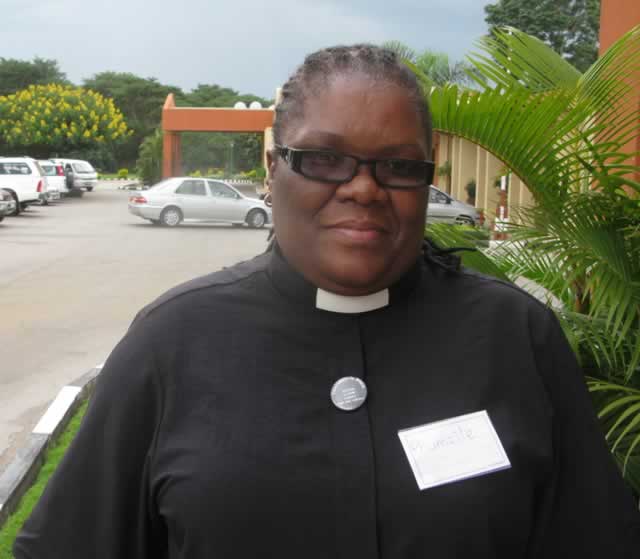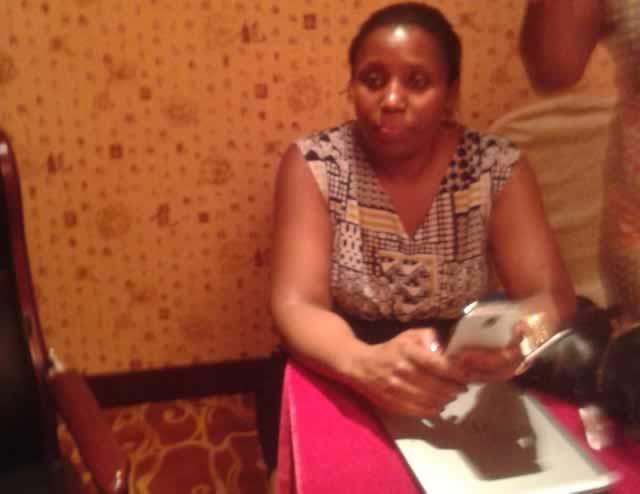Child-headed families cry out for help

Mambidzeni Jaya does not remember the year she was born.
She looks over 75-years-old. Her husband Zemba Masiyaza Muzungu looks even five or more years older and ailing.
The couple has seen their roles taken back 50 years when they were parents. Today that parental role has been thrust again onto their hands and with no financial muscle and energy to do so, it becomes a mammoth task, if not mission impossible.
The couple was blessed with 14 children. Of these, 10 have died.
Of the remaining four, the only girl left the village four years ago to work as a domestic worker in Harare and for three years now she has not returned to see the old parents.
They heard she is married and has a child but the going is tough for her so she has not been able to come and show them her husband or the baby.
They have since forgotten about the lobola issue, all they need is to see their daughter, son-in-law and the new baby before they too make peace with their maker.
Of the three males alive, one is aged 24 and single. He helps them with farming and firewood hewing at their homestead at Mutumha in Buhera north.
The other two are married and do odd jobs in the small town of Mvuma.
They rarely visit since they are cash-constrained too.
Mbuya and Sekuru Muzungu have 10 orphans under their care. These are all minors ranging from five to 12 years and still in primary school which is quite some distance from their homestead.
Mbuya Muzungu remembers that her sons and daughters-in-law all perished due to TB.
She said at times the husbands got ill first with the wives shortly falling ill too.
She said all she knows is that they never responded well to medication even though TB is treatable.
Since she cannot read or write, she does not know if the deaths were HIV-related or not. All she knows is that they all lost so much weight, got bed-ridden and failed even to eat. By the time they breathed their last, they had suffered so much and it was better that the pain was over.
“All my children and their wives got TB and failed to respond to medication. It was such a sorry sight to see them leave their jobs and come home to die leaving these orphans alone,” said the old woman.
The two anthills which serve as the family burial shrines are full and she looks up to the Lord to give her strength to look after her grandchildren.
“As you can see, we are both old. Sekuru currently finished TB medication but has not gotten any better,” said Mbuya Muzungu.
Sekuru Muzungu enquired if anyone had brought him some painkillers since he is under immense pain and has difficulty in breathing.
His feet are swollen and he walks barefooted because of the swelling.
Despite the fact that at one time he stayed in a clinic receiving some TB treatment for two months, he still is ill. Could it be he now has multi-drug resistant TB or that he maybe suffering from some other illnesses associated with old age?
“Sekuru was once admitted at Mudanda Clinic and the 11-year-old girl stopped going to school for two months as she prepared his meals at the clinic.
“The clinic has no kitchen so someone has to do the cooking for you if you are admitted there,” said Ambuya Muzungu, who had to remain behind at home with the rest of the orphans.
Since the cause of death for the 10 children and their spouses was TB, Sekuru and everyone in the family ought to have been screened for TB.
This has not been the case, even the little ones staying with Sekuru have not been screened owing to the distance to the nearest health centre and the strain on the health delivery system.
The children also need to have HIV tests carried out as they stand a chance of having been exposed.
Children under 16 need a guardian or parent to get an HIV test and with such old grandparents it’s asking for too much.
Ambuya Muzungu said one of her late sons kept her national identity card and when he died, she failed to locate it. This then means she is not able to access some donor aid as she has no identity papers.
Ambuya Muzungu was identified by Dananai, a Trust registered in the area as she picked up maize grain after lucky recipients had received their share.
“We were touched by Ambuya Muzungu’s plight .She was picking up maize grains from the centre where registered recipients had got their share,” said a spokesman for Dananai, Mr Mudondo.
The old woman is grateful as Dananai has come to her rescue in the hour of need.
Ambuya Muzungu said were it not for Dananai, she would have starved together with her family long back.
“Dananai is my saviour. They have given me clothing when the kids were in tatters. They have given me seed, maize-meal and blankets and they are helping with the education of three of the children,” said Ambuya Mazungu who spoke most of the time since Sekuru had difficulty even with breathing.
The old woman looked up to the sky and prayed that the rains would fall.
“These children have had nothing to eat. We ran out of mealie-meal three days ago and the miller has flatly refused some trade in. I wanted to give him three cocks but he said he wanted some money,” she added.
On the day in question three of the children had not gone to school.
“Those writing Grade 7 examinations have gone to school. These three said they could not go to school on empty stomachs so you can see them like monkeys high up the mulberry tree,” she said.
This is the day-to-day life for the old woman. The mulberries were still green but the little ones were perched high up on the branches eating anything that resembled ripening stage.
Ambuya was also concerned because three of the orphans have no birth certificates and she was afraid they would not be able to write the Grade 7 examination in the coming years.
“These three have no birth certificates and they may fail to write their exams.
“What is the future of a child with no education?” she asked with great concern.
Dananai Care and Support Trust has been providing home-based care programmes, livelihoods projects to empower communities, raise awareness in prevention of new HIV infections and support to orphaned and vulnerable children in Buhera district.
Dananai works in 20 wards in Buhera North mainly as volunteer caregivers.
There are 365 volunteers and each caregiver visits 10 homes.
“It works well in rural the set up. Despite the fact that it’s voluntary the sense of belonging gives people the impetus to help their fellow villagers.
“When incentives are available they receive these small donations but most of the time it’s voluntary,” said Mr John Tivaone who is one of the programme officers with Dananai.
“We do not have the figures offhand, but many households are child-headed and these need special recognition and the caregivers do that,” he said.
He added: “Some, like the Muzungu orphans, are still lucky and live with grandparents who are too old even to work, but that is still a consolation as the family unit is kept intact.
“We provide livelihoods projects because it is not always that we have food aid, so families must be in a position to provide for themselves.
“We have a few poultry projects running on some child-headed homesteads and from this they manage to earn a living, although it is tough being a parent when still a child.”
Mr Tivaone pointed out that Dananai had run out of funding.
“We cannot close doors because we have run out of funding. We are housed here at Murambinda Hospital which is free and accessible so we keep coming to work hoping someone will come to our rescue,” said Mr Tivaone.
Dananai has helped 300 orphans with educational grants.
“Right now we have sent proposals to CARA and the Oak Foundation for funding and we are appealing to any other well-wishers to help,” he said.
The makeshift primary school the Muzungu orphans attend has 150 pupils.
The school headmaster was away as he had accompanied those writing the Grade 7 examination to the nearest exam centre since their school does not offer this.
The teacher in charge said there was a staff complement of four and everyone – the headmaster included – taught.
For the Muzungu orphans and others in the area attending such a school, which barely has desks let alone books, the future looks bleak if nothing is done to arrest the sad situation on time.
Two of the teachers at the school share a two-roomed house while two others walk daily to and fro their homes dotted in the villages.
In 1980, education became a basic right offered to all primary school level children in the country freely, but today many struggle to go to school.
May we strive to have zero new HIV infections as we struggle to take the effects of HIV in today’s living manageable by also providing education which is an empowering tool.
In all you get, may you get correct understanding.








Comments